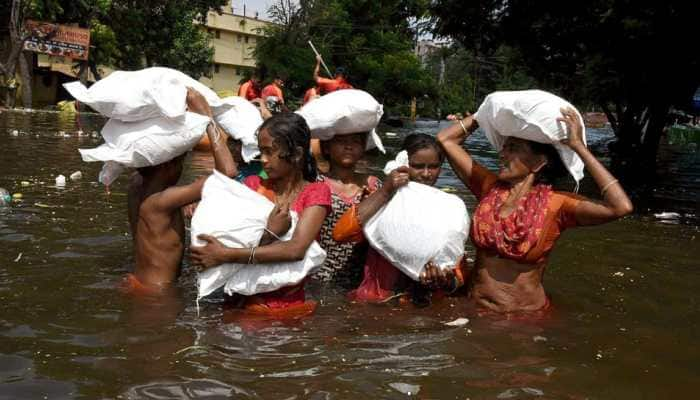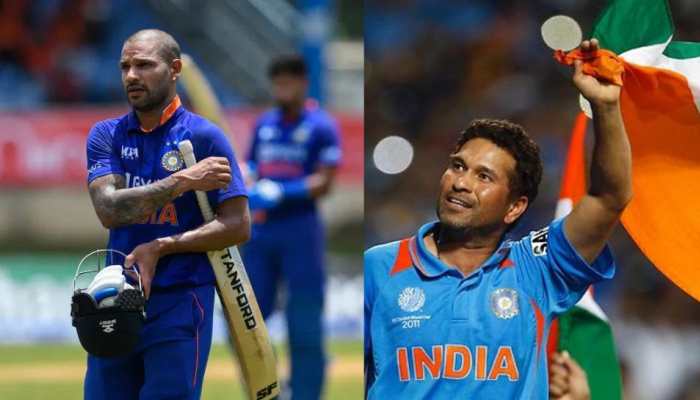Voters get right to reject all candidates in elections
In a landmark judgement, the Supreme Court on Friday gave the citizens of India the right to reject all candidates in elections.
Trending Photos
)
Zee Media Bureau/Deepak Nagpal
New Delhi: In a landmark judgement, the Supreme Court on Friday gave the citizens of India the right to reject all candidates in elections.
Hearing a petition filed by the People`s Union for Civil Liberties, an NGO, the apex court ruled that the Electronic Voting Machines or EVMs should have a button that will allow the voters to choose "none of the above" option.
The bench of Chief Justice P Sathasivam, Justice Ranjana Prakash Desai and Justice Ranjan Gogoi said that voters should be allowed to reject all candidates standing in an election in his/her constituency.
"Negative voting would foster purity and vibrancy in elections," the court said.
"Negative voting would lead to systemic change in polls and political parties will be forced to project clean candidates," the bench added.
The bench noted that the concept of negative voting is prevalent in 13 countries and even in India, Parliamentarians are given an option to press the button for abstaining while voting takes place in the House.
"If right to vote is statutory right, right to reject candidate is fundamental right of speech and expression under Constitution," the court stated further.
It said that democracy is all about choice and significance of right of citizens to cast negative voting is massive.
Also Read: The Right to Reject All: Indian democracy’s new hot button
With the concept of negative voting, the voters who are dissatisfied with the candidates in the fray would turn up in large number to express their opinion which would put unscrupulous elements and impersonators out of the polls, it said.
The judgement will be implemented immediately, and the "none of the above" option will be included in EVMs and ballot papers to be used in the upcoming state Assembly Elections later this year.
The SC has also instructed the Election Commission to spread the message among voters.
Also Read: Congress, BJP welcome ‘right to reject all’ option
While the judgement is historic, it will have little impact on the outcome of an election as negative votes will only be recorded on EVMs but not counted.
The SC bench, while reading out the operative portion of the judgement, did not throw light on a situation in case the votes cast under no option head outnumber the votes got by the candidates.
It said that secrecy of votes cast under the no option category must be maintained by the Election Commission.
Those in favour of negative voting have been demanding that re-election should be ordered in a constituency where more than 50 per cent of the voters reject all candidates. At present, the law doesn`t allow that.
In the past, the Election Commission has also backed negative voting.
The governments had however been reluctant to implement the same.
As per current rules, a voter can choose to cast a "negative vote" by going to the polling booth, sign on the register, but not vote.
The apex court bench of Justice BN Agrawal (since retired) and Justice GS Singhvi by their February 23, 2009 judgment while referring the matter to a larger bench had framed two questions for the court to examine "whether the right of voter to exercise his choice for the candidate is a necessary concomitant of the voter`s freedom of expression guaranteed under Article 19(1)(a) of the Constitution".
The court on the second aspect had said, "We are further of the view that width and amplitude of the power of the (Election) Commission under Article 324 needs further consideration by a larger Bench in the light of the (earlier) judgments of this court whereby the elector`s right to be informed about the assets and antecedents of the persons seeking election to the legislature has been duly recognized".
The latest verdict is part of series of judgements passed by the apex court on the election process.
Earlier, the apex court had restrained people in custody from contesting elections.
The apex court has also ruled that MPs and MLAs would stand disqualified after being convicted of serious crimes. The government has brought an ordinance seeking to negate the court`s judgement striking down a provision in the electoral law that protected convicted lawmakers from immediate disqualification.
Stay informed on all the latest news, real-time breaking news updates, and follow all the important headlines in india news and world News on Zee News.
Advertisement
Live Tv
Advertisement







)
)
)
)
)
)
)
)
)
)
